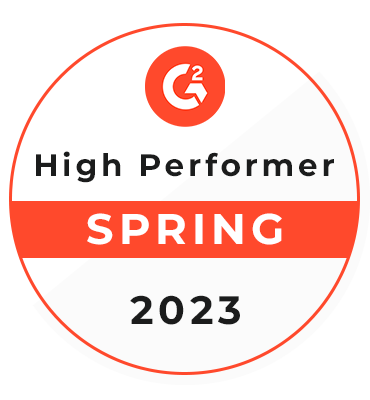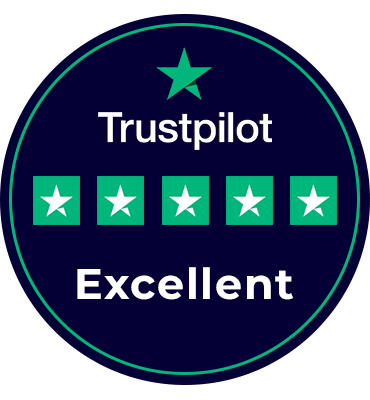MVP Software Development for Fintech Apps: A Complete Guide
Shyam Singh
Last Updated on: 18 September 2025
The fintech industry is evolving rapidly, with new startups emerging every day to solve challenges in payments, banking, lending, insurance, and investment management. However, developing a fully-featured fintech application from scratch can be risky, time-consuming, and expensive. This is where MVP software development for fintech apps becomes a crucial strategy for startups and entrepreneurs.
In this blog, we will explore what fintech MVP development is, its benefits, how to approach building a fintech MVP, and key considerations to ensure success in the competitive financial technology space.
What is an MVP in Fintech?
A Minimum Viable Product (MVP) is the first version of a product that includes only the essential features needed to address core problems and deliver value to early users. For fintech apps, this could mean:
- Basic payment or transaction functionalities.
- User authentication and security features.
- Simple dashboards or reporting tools.
- Integration with core banking or financial APIs.
The goal of a fintech MVP is to validate the product idea, gather user feedback, and reduce development risks while keeping costs manageable.
Why MVP Software Development is Critical for Fintech Startups
Building a fintech MVP offers several advantages for startups looking to succeed in the competitive financial sector:
- Validate Business Ideas Quickly: Test your fintech concept with real users before investing in a full-scale product.
- Reduce Costs: Avoid unnecessary development expenses by focusing on core functionalities first.
- Attract Investors: A working MVP demonstrates viability and helps secure funding.
- Gather Early Feedback: Collect insights from users to improve the app iteratively.
- Speed-to-Market: Launch your fintech solution faster than competitors.
Key Features of a Fintech MVP
When building an MVP for fintech apps, certain features are critical to ensure functionality, security, and user engagement. These include:
- User Registration & Authentication: Secure login options including email, phone, and two-factor authentication.
- Core Transactions: Payments, transfers, and basic account management features.
- Data Security: Compliance with PCI DSS, GDPR, and encryption standards.
- Analytics & Reporting: Basic dashboards for tracking transactions, balances, and KPIs.
- Integration with APIs: Connectivity with banks, payment gateways, and third-party financial services.
Steps to Build a Fintech MVP
Developing an MVP for a fintech application requires a structured approach to ensure it meets business goals and user needs. The key steps include:
1. Idea Validation
Understand the problem your fintech app aims to solve. Conduct market research and competitor analysis to ensure your solution fills a real need in the financial sector.
2. Define Core Features
Identify the minimum set of functionalities needed to test your concept. Avoid adding unnecessary features that increase complexity and cost.
3. Design Prototypes
Create wireframes and mockups to visualize your app’s interface, user flow, and user experience. A well-designed MVP UI improves adoption and engagement.
4. Develop the MVP
Build the fintech MVP focusing on core functionalities. Use modern technologies and agile methodologies to ensure flexibility for future iterations.
5. Test & Gather Feedback
Conduct rigorous testing to ensure security, functionality, and usability. Gather feedback from early users to identify areas for improvement.
6. Iterate & Scale
Refine the MVP based on feedback, fix bugs, and gradually add advanced features to scale the app into a full-fledged fintech solution.
Benefits of MVP Software Development for Fintech Apps
- Reduced Financial Risk: Minimize upfront investment by validating the app before full development.
- Faster Launch: Enter the market quickly and gain a competitive advantage.
- Investor Confidence: A functional MVP demonstrates feasibility and market potential.
- Customer-Centric Development: Real user feedback helps refine features and improve UX.
- Scalability: Build a strong foundation for adding advanced features in future versions.
Challenges in Building a Fintech MVP
- Ensuring high-level security and compliance with financial regulations.
- Integrating with third-party banking and payment systems.
- Designing a seamless and intuitive user experience.
- Managing scalability and performance as user base grows.
- Balancing cost constraints while building a functional MVP.
Best Practices for Fintech MVP Development
- Focus on solving one core problem effectively.
- Prioritize security and compliance from day one.
- Use agile development to adapt quickly to feedback.
- Keep the UI simple and intuitive.
- Monitor KPIs to guide product improvements.
Technologies Used in Fintech MVP Development
- Programming languages: Java, Python, Ruby, Node.js
- Front-end frameworks: React, Angular, Vue.js
- Mobile: Flutter, React Native, Swift, Kotlin
- Databases: MySQL, PostgreSQL, MongoDB
- Cloud & DevOps: AWS, Azure, Docker, Kubernetes
Cost of Fintech MVP Development
The cost of developing an MVP for fintech apps depends on complexity, features, and the development team. Typical costs are:
- Basic MVP: $15,000 – $30,000
- Medium Complexity MVP: $30,000 – $60,000
- Advanced MVP: $60,000 – $100,000+
Working with experienced MVP developers ensures cost efficiency and higher quality for your fintech application.
Industries in Fintech Using MVPs
- Digital Banking & Payments
- Lending & Loan Management
- Investment & Wealth Management
- Insurtech Solutions
- Cryptocurrency & Blockchain Apps
FAQs: MVP Software Development for Fintech Apps
Q1. Why is MVP development important for fintech startups?
An MVP helps fintech startups validate ideas, reduce costs, and gain early market feedback before investing in full-scale development.
Q2. How long does it take to develop a fintech MVP?
On average, a fintech MVP takes 8–16 weeks, depending on complexity, features, and regulatory requirements.
Q3. What are the core features of a fintech MVP?
Core features typically include user authentication, payments or transactions, basic analytics, and API integration with financial services.
Q4. How much does it cost to build a fintech MVP?
Costs range from $15,000 for basic MVPs to $100,000+ for advanced solutions with complex features.
Q5. What technologies are used in fintech MVP development?
Technologies include Java, Python, Node.js, React, Angular, Flutter, cloud platforms like AWS, and secure databases like PostgreSQL.
Q6. Can a fintech MVP comply with financial regulations?
Yes, reputable MVP developers ensure compliance with PCI DSS, GDPR, KYC/AML regulations, and other regional financial rules.
Q7. Can an MVP be scaled into a full fintech app?
Absolutely. MVPs are designed to be scalable, allowing startups to add advanced features and expand user base over time.
Q8. How do MVPs help attract investors?
A functional MVP demonstrates viability, user interest, and market potential, which helps attract funding from investors and venture capitalists.
Conclusion
MVP software development for fintech apps is a strategic approach for startups to validate ideas, minimize risk, and launch products faster in the competitive financial technology market. By focusing on core features, ensuring compliance, and gathering early user feedback, fintech startups can build scalable solutions that meet market needs effectively.
Partnering with an experienced fintech MVP development agency allows startups to leverage technology expertise, reduce time-to-market, and secure investor confidence, paving the way for long-term success.

 Verified
Expert in Software & Web App Engineering
Verified
Expert in Software & Web App Engineering
I am Shyam Singh, Founder of Fulminous Software Private Limited, headquartered in London, UK. We are a leading software design and development company with a global presence in the USA, Australia, the UK, and Europe. At Fulminous, we specialize in creating custom web applications, e-commerce platforms, and ERP systems tailored to diverse industries. My mission is to empower businesses by delivering innovative solutions and sharing insights that help them grow in the digital era.
Partner with Top-Notch Web Application Development Company!
Discuss your Custom Application Requirements on info@fulminoussoftware.com or call us on +1-903 488 7170.
15 Days Risk-Free Trial

